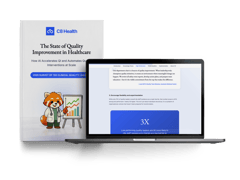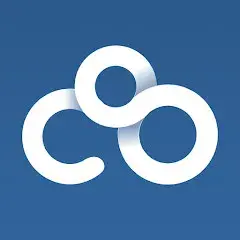
Refining the Onboarding Process for New Hires with Personalized Mobile Access
Starting a new job, regardless of the industry, involves learning the ropes. Some organizations have a rigorous, structured approach to onboarding, while others prefer the "throw in the deep end" method.
In my experience, spanning both computer science and healthcare, I've encountered both ways. Healthcare is fast-paced and a well-structured onboarding process helps new hires understand their roles, learn about the organization, and feel valued. But in this sector there's often a lack of a structured onboarding period, with new staff expected to join the workforce immediately.
When you consider the opportunities that mobile technology brings, there's a chance to refine the onboarding process for new hires and offer a more personalized, accessible experience.
Meet the Expert
Ido Zamberg M.D. is a board-certified physician (General Internal Medicine and Anesthesia), currently a Fellow at the Division of Experimental Medicine, McGill University Health Center, Montreal, Canada.
Standardized vs. Personalized Onboarding
Personalized onboarding tailors to each new employee's unique needs and learning styles while covering essential information that all employees need to know. Personalized onboarding, including mentorship and regular touchpoints, enhances competence and job satisfaction.
In healthcare, job demands are high and professionals need to be competent and confident from the start. So, whether you're new or experienced, you need to get to grips with policies, procedures, and protocols as soon as possible. Even hospitals within the same system may have different rules.
If a nurse anesthetist (CRNA) isn't allowed to administer an epidural in one institution, it doesn't make sense to include this in their onboarding process or define this as one of their competencies. But if they can give epidurals at another institution, it should be part of their onboarding process and competency list.
The Unique Challenges of Onboarding in Healthcare
The healthcare industry can be surprisingly different from others. It carries a higher risk and can be much more dangerous, making the onboarding process even more important.
For example, in anesthesia, there's a level of supervision, but from day one, you're expected to know everything and practically administer anesthesia in the operating room. It's virtually impossible to know everything from the start.
Some of the main challenges in healthcare onboarding are:
- Annual onboarding pattern: Physicians are typically hired once a year, resulting in a yearly turnover and an influx of staff with zero experience.
- Immediate full responsibility: Healthcare professionals, especially physicians, are expected to assume full responsibility from their first day, lacking the gradual training period common in other industries.
- Limited practical training in medical education: While medical education includes practical training in the last three years, the responsibility remains limited, contributing to a lack of preparedness for real-world scenarios.
- Lack of clear onboarding objectives: Traditionally, healthcare lacks a structured onboarding process, leaving new staff without clear objectives, plans, or limits for their initial days, weeks, or months.
- Difficulty in transitioning between sectors: Healthcare professionals often move between different sectors, units, or departments within a hospital, creating challenges in maintaining updated knowledge for each specific area.
- Expectation of immediate competence: There is an expectation for healthcare professionals to be 100% competent from day zero, leading to increased stress and potential errors.
- Lack of personalization: Healthcare traditionally lacks personalization in onboarding, expecting a one-size-fits-all approach that disregards individual capabilities.
- Frequent changes in protocols and procedures: Healthcare settings often witness changes in policies, protocols, and evidence-based practices, challenging professionals to stay updated.
Refining the Onboarding Process
To address the challenges in healthcare onboarding, there is a need for a shift towards a more structured and personalized approach. The following strategies can contribute to refining the onboarding process.
1. Creating SMART Objectives
Physicians often need more practical experience as they're learning so it calls for a tailored onboarding process. The transition from education to practice involves a significant shift in responsibility. So the training can include mentorship or clear objectives for the initial months to help transition into the role.
A good onboarding aligns with the SMART framework-smart, measurable, attainable, relevant, and timely. Daily specific objectives, especially in specialized areas like anesthesia, can significantly decrease onboarding time.
2. Offering Mobile Access to Information
By offering personalized mobile access, healthcare organizations can provide new hires with a customized onboarding experience.
Here is how it works:
- Flexibility: With mobile access, new hires can complete the onboarding process at their own pace and in their own time. This flexibility allows them to balance their learning with their other responsibilities, reducing the stress associated with the onboarding process.
- Efficiency: Mobile technology can automate many aspects of the onboarding process, reducing the need for paperwork and manual data entry. This not only saves time but also reduces the risk of medical errors.
- Engagement: Through mobile apps, organizations can provide interactive learning experiences, such as video tutorials, quizzes, and virtual tours. This can make the learning process more engaging and enjoyable for new hires.
- Automation: Mobile technology can automate the delivery of relevant knowledge based on an individual's schedule and rotations. A few days before they go to a new rotation or unit, they receive a list of relevant content suggested by the director for that specific rotation or unit. This makes it much easier to understand what is required and how they're allowed to work in the specific unit.
3. Implementing an Intelligent Platform for Local Knowledge Management
When starting in a new role in healthcare, you need to have access to your site's knowledge base and information for safe medication administration. This includes specifics like drug names, dosages, and equipment. With an automated mobile solution to knowledge management, you can strengthen your ability to manage risks.
With centralized information, technology platforms have the potential to improve onboarding for healthcare professionals. But you want a system that can allow you to organize knowledge efficiently, update it, and push notifications to relevant people when they need it.
Our platform, C8Health, is a cloud-based platform trusted by leading hospitals worldwide. It provides quick access to updated, vetted information for the specific point of care you are working on. Whether in your pocket or at any workstation in the hospital, you have instant access to the latest information for your upcoming tasks.
We also offer personalized communication channels and news feeds, providing relevant updates personalized to your position and specialty. This ensures that you, as a healthcare professional, are equipped with the necessary skills and understanding to provide safe and competent care to patients.
Our latest case study demonstrates the real-world impact that integrating C8 Health's platform has had on anesthesiology departments across the US. Download it today to learn more.
Mobile Onboarding Process Made Easier by Technology
It is essential for organizations to continually innovate and adapt their onboarding processes to meet the needs of their workforce. By leveraging technology and prioritizing personalized onboarding, you can ensure their new hires are well-equipped to provide high-quality patient care from their first day.
Platforms like C8Health provide the tools health professionals need to succeed from the first day. We ensure that departments and professionals work with the most updated knowledge locally vetted in their workplace, from anywhere, and using any device.


